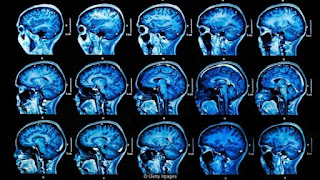Why Alzheimer's Disease is Caused?
Alzheimer's disease is caused by parts of the brain
shrinking (atrophy), which affects the structure and function of particular
brain areas. It's not known exactly what causes this process to begin. However,
in the brains of people with Alzheimer's disease, scientists have found amyloid
plaques (abnormal deposits of protein), neurofibrillary tangles (containing
tau) and imbalances in a chemical called acetylcholine. It's also common to
have a degree of vascular damage in the brain. These reduce the effectiveness
of healthy neurons. Over time, this damage spreads to several areas of the
brain. The first areas affected are responsible for memories.
Increased risk
Although it's still unknown what triggers Alzheimer'sdisease, several factors are known to increase your risk of developing the
condition.
Age
Age is the single most significant factor in the development
of Alzheimer's disease. The likelihood of developing the condition doubles
every five years after you reach 65 years of age. However, it's not just older people who are at risk of
developing Alzheimer's disease. Around 1 in 20 people with the condition are
under 65. This is called early onset Alzheimer's disease and it can affect
people from around the age of 40.
Family history
The genes you inherit from your parents can contribute to
your risk of developing Alzheimer's disease, although the actual increase in
risk is small if you have a close family member with the condition.
Down's syndrome
People with Down's syndrome are at a higher risk of
developing Alzheimer's disease. This is because the genetic fault that causes Down's
syndrome can also cause amyloid plaques to build up in the brain over time,
which can lead to Alzheimer's disease in some people.
Head injuries
People who have had a severe head injury have been found to
be at higher risk of developing Alzheimer's disease.
Cardiovascular
disease
Research shows that several lifestyle factors and conditions
associated with cardiovascular disease can increase the risk of Alzheimer's
disease.
These include:
- · smoking
- · obesity
- · diabetes
- · high blood pressure
- · high cholesterol
You can help reduce your risk by:
- · stopping smoking
- · eating a healthy, balanced diet
- · leading an active life, both physically and mentally
- · losing weight if you need to
- · drinking less alcohol
- · having regular health checks as you get older
To know more join us at the International Conference on Alzheimers, Dementia and Related Neurodegenerative Diseases at Madrid, Spain on 27-28 August, 2018.




Comments
Post a Comment